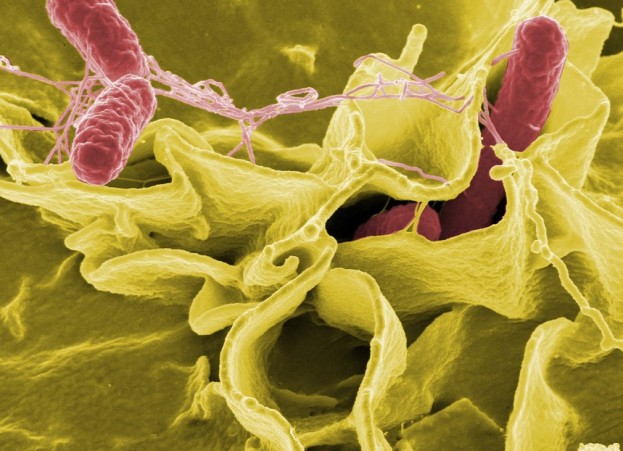Archives

Woman's Itchy Throat Turns Out to Be a 1.5-Inch Worm She Contracted From Sashimi
-

Some Restaurants to Stay Closed for up to a Year Due to COVID-19 Pandemic
The pandemic has caused so much damage, especially to food businesses and establishments. (Photo: Pixabay) Due to the COVID-19 pandemic, many business establishments were devastatingly affected, which led to significant financial loss. -

Unpopular Myths About Vegan Lifestyle
Thinking of going vegan? Here are some myths you might want to know about the vegan lifestyle. (Photo: Pixabay) Vegan is definitely life! It's a total win-win shifting to a vegan lifestyle--you get to eat and live healthy for a cause: the environment. -

7 Things You Probably Didn't Know About Coffee
Here are some coffee facts that you might not be aware of. (Photo: Pixabay) If you are a busy person who is always on the go and needs to hustle, coffee is probably one of your favorite go-to's. -

Popular Snacks From All Around The Globe
Here are some of the most popular snacks across the globe. (Photo: Pixabay) Trying a new recipe can be fun, but let's be honest-- going around the kitchen can be very tiring and stressful. -

Health Benefits of Whole Grain
Whole grain is one of the healthiest food in the chart that you can eat, here are some of its benefits. -

Goya Sparks Arguments After CEO Praises President Donald Trump
Goya CEO Unanue praises President Donal Trump and receives boycott as a backlash. (Photo: Twitter/SocialistBoomer) Goya Foods, the largest Hispanic-owned food company in the US, received backlash after its CEO praised President Donald Trump for his leadership. -

World's Best-Tasting Tomato Discovered!
Tomatoes are very healthy, especially when it's freshly picked. When Dickie Brennan opened the Commissary in New Orleans, a commercial kitchen supplying staples and basics like soups and desserts, he only had one thing to find the best-tasting tomato. -

Baking Tips and Hacks That Are Worth Trying
Try these baking tips and hacks at home and you will thank us for it later! (Photo: Pixabay) Baking has always been a fun activity. It is, after all, an enjoyable pastime and a business that can be enjoyed with your family members. -

Paul's Italian Restaurant Says Goodbye, Auction on Friday
Another restaurant is out of business. (Photo: Pixabay) A beloved local Italian restaurant in Winston-Salem finally bids goodbye after 32 years of service due to the current COVID-19 pandemic's financial restraints. -

What Makes Kimchi Healthy? Here Are Its Benefits
Kimchi is popular around the world. Here are some facts as to why kimchi is good for your health. (Photo: Pixabay) Since the world is currently taken by storm by the Korean spell, thanks to its tear-jerking tv dramas and Kpop idols, it wouldn't be utterly Korean in style and fad if it wasn't for their food. -

6 Harmful Low-Fat Foods You Should Be Aware of
Going on a low-fat diet? Be mindful of these low-fat foods that can harm yourself! (Photo: Pixabay) These days, a lot of people would buy the idea of "low-fat" products. -

Guide On Planning A Food Time Table For Busy College Students
Lack of energy, depression, and stress are the main problems of an average college student. Such issues do not only interfere with the general well-being of the students but also their academic success. Thus, a considerable number of people do not have the energy and strength to write academic papers or complete other assignments. -

Top 7 Foods You Need To Avoid If Your Diabetic
Most foods contain sugar. If you're diabetic, here are 10 foods to avoid. (Photo: Pixabay) Eating can be very addicting. However, if you have a specific health condition, you need to take care of yourself more often, and it means you should always be mindful of what you eat. -

Starbucks Branch Writes 'Isis' on Muslim Woman's Coffee Cup
A 19-year old Muslim teenager filed a human rights complaint against a Starbucks barista after she received a Starbucks ordered labeled "ISIS."
MOST Read
UK Supermarkets Warn Rachel Reeves: Tax Hike Would Bring 'Inevitable' Blow to Food Prices
Will Starbucks Restock the Bearista Cup? Outrage as Viral Item Resells for Up to $1,000
Aldi Faces String of Food Recalls in Quick Succession — Are Quality Checks Slipping?
'Salmonella Sussex': Meghan Markle's Rings Spark Backlash Over Raw Turkey Hygiene Fears
Coca-Cola Announces Henrique Braun as CEO, Eyes Growth in Health-Conscious Beverage Market
News




